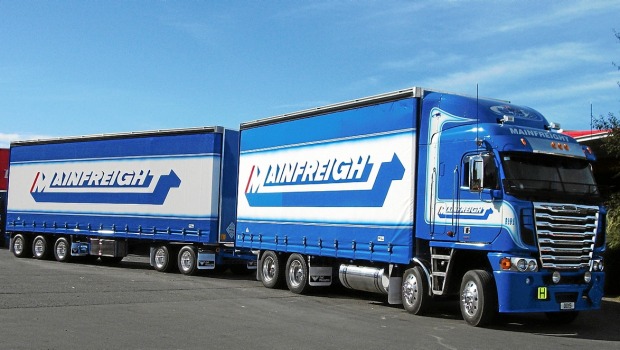Bigger Ain’t Necessarily Better.
If you have driven around our western states for any time at all, you have probably passed—or, more likely, been passed— by a huge truck that’s towing another unit. In fact, on a recent train trip, we were running parallel to a main highway and I saw a big truck that was towing TWO additional units. (I remember thinking at the time, “Wherever he’s going, I hope he won’t have to back up.”)

I have no idea what sort of safety record these double and triple units have, but it’s got to be scary for other drivers who have to negotiate around them.
On top of that, there’s the latest device the big trucking companies are using to skirt the law and increase their profits: they turn their drivers into independent contractors. Since, technically, they are no longer employees, the trucking company is no longer responsible if the drivers choose to be on the road 12 or 14 hours a day. Or even more.
And now comes one more thing to worry about. There is a proposal pending in Congress to increase the maximum allowable weight for trucks from 80,000 pounds to 91,000 pounds.
Holy Gross Tonnage, Batman! Did you realize that some of these big trucks highballing along our highways could weigh as much as forty tons? And now they want to raise the limit by another five-and-a-half tons?
It’s estimated that some 60,000 bridges in this country are potentially unsafe. Swell! Then let us, by all means, allow the truckers to carry an additional five-and-half tons over those bridges and out onto whatever Interstate highway is nearby. There’s too damn much government regulation in our lives anyway.



Have you considered that the governmental excess is in the form of general tax revenues providing the rights-of-way for these things, as well as in providing enough local roads and streets to get 53 foot trailers (which don’t run in these trains, as a general rule) into downtown commercial areas all across the fruited plain?
Then the highway lobby will talk about how much cheaper stuff is at the local big-box because of the productivity efficiencies of running the truckers ragged.
It’s cheaper because of the independent-contractor dodge you mention, as well as because of the implicit subsidies when general taxes pay for the roads, and because part of the retail price takes the form of car repairs (from using the roads the tandems and triples have beaten to pieces) and a few people each week are sacrificed to propitiate and appease the gods.